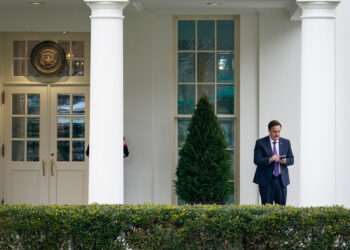Eric Adams positioned himself as a centrist among New York City residents. He was undoubtedly the most unusual of the numerous Democratic contenders for mayor: a former Republican and a former NYPD officer. He was well-versed in the opposing side’s tactics and swore not to fall for any of their nonsense. But he did something unexpected a week after the primary election: He dared to dispute the authenticity of the still-in-progress count as his once-commanding margin narrowed as more votes were counted, giving off strong overtones of You Know Who.
The nation’s most populous city tried something unusual in the primary: instead of picking a favorite, voters could rank up to five candidates. It’s a first for the city, and it’s expected to take weeks, not days, to resolve. According to the preliminary results, Adams was considerably ahead of his nearest rival, former Sanitation Commissioner Kathryn Garcia. However, as additional ballots came in during the next week, the lead decreased from several percentage points to just a handful. Adams played the Trump card rather than accept a decision that everyone knew was likely.
“The vote total just released by the Board of Elections is 100,000-plus more than the total announced on election night, raising serious questions,” read a statement from Adams’ team. “We have asked the Board of Elections to explain such a massive increase and other irregularities before we comment on the Rank Choice Voting projection.”
Soon after Adams’ statement went public, the city’s Board of Elections issued its own, conceding that “there is a disparity in the unofficial RCV round by round elimination report.” They said they’re “working with our RCV technical experts to discover where the discrepancy arose,” but didn’t elaborate. We appeal for patience from the public, elected authorities, and candidates.”
Many people were triggered by Adams’ statement, which brought back memories of the 45th president’s forceful contesting of a free and fair election in the aftermath of the 2020 election, even after it became evident that his claims were unfounded (and often convoluted). And they were not pleased to be back in that dreadful state of mind.
here we go…Eric Adams in a statement here is baffled that when the vote counting process plays out, the vote totals change from what they were on election night…this is the argument Trump used to declare election fraud https://t.co/Ex3QVzkLVV
— Matt Binder (@MattBinder) June 29, 2021
The Trump vibes were so strong even Don Jr. tweeted about it. But others were not that surprised that Adams would pull this.
I've been told you are not allowed to question irregularities. https://t.co/jtDkNkJYar
— Donald Trump Jr. (@DonaldJTrumpJr) June 29, 2021
Others blame the decision to test a new type of voting so soon after an election, which they say encouraged crooks to take advantage of the confusion.
I recognize that hindsight is 20/20 but it sure seems like using a novel voting method in a primary for the dominant party in America's largest city mere months after an election where, like, half of the country believes something nefarious happened with voting wasn't wise. https://t.co/ZufdDL9NL2
— Drew Holden (@DrewHolden360) June 29, 2021
And others were worried that this — questionable, if not baseless, questioning of election results — were now the new normal, if even a Democratic candidate was willing to go there.







